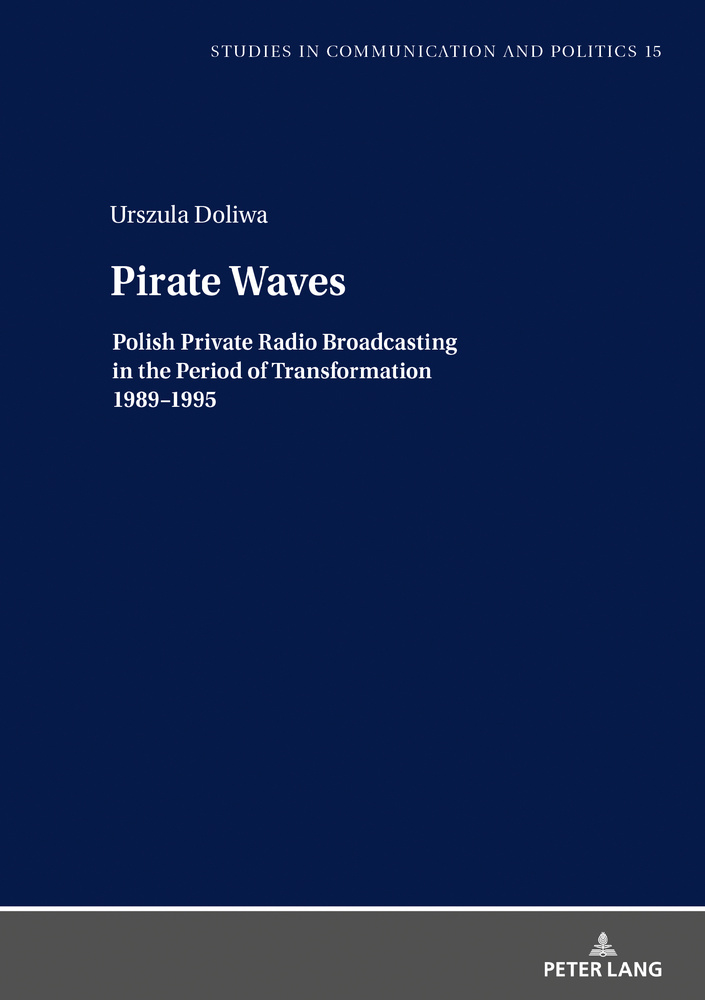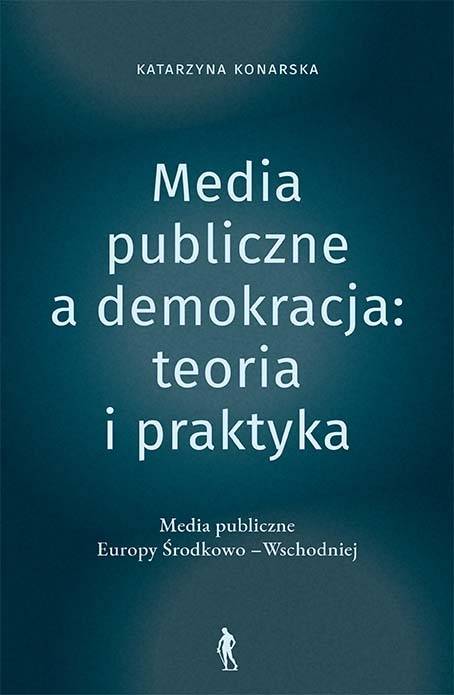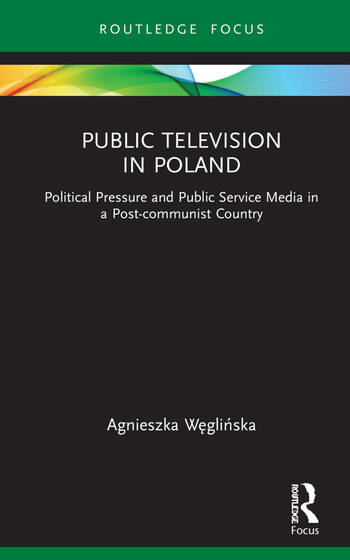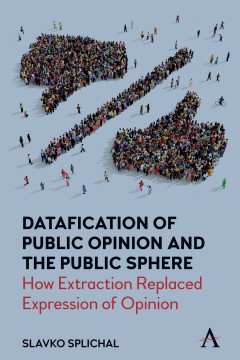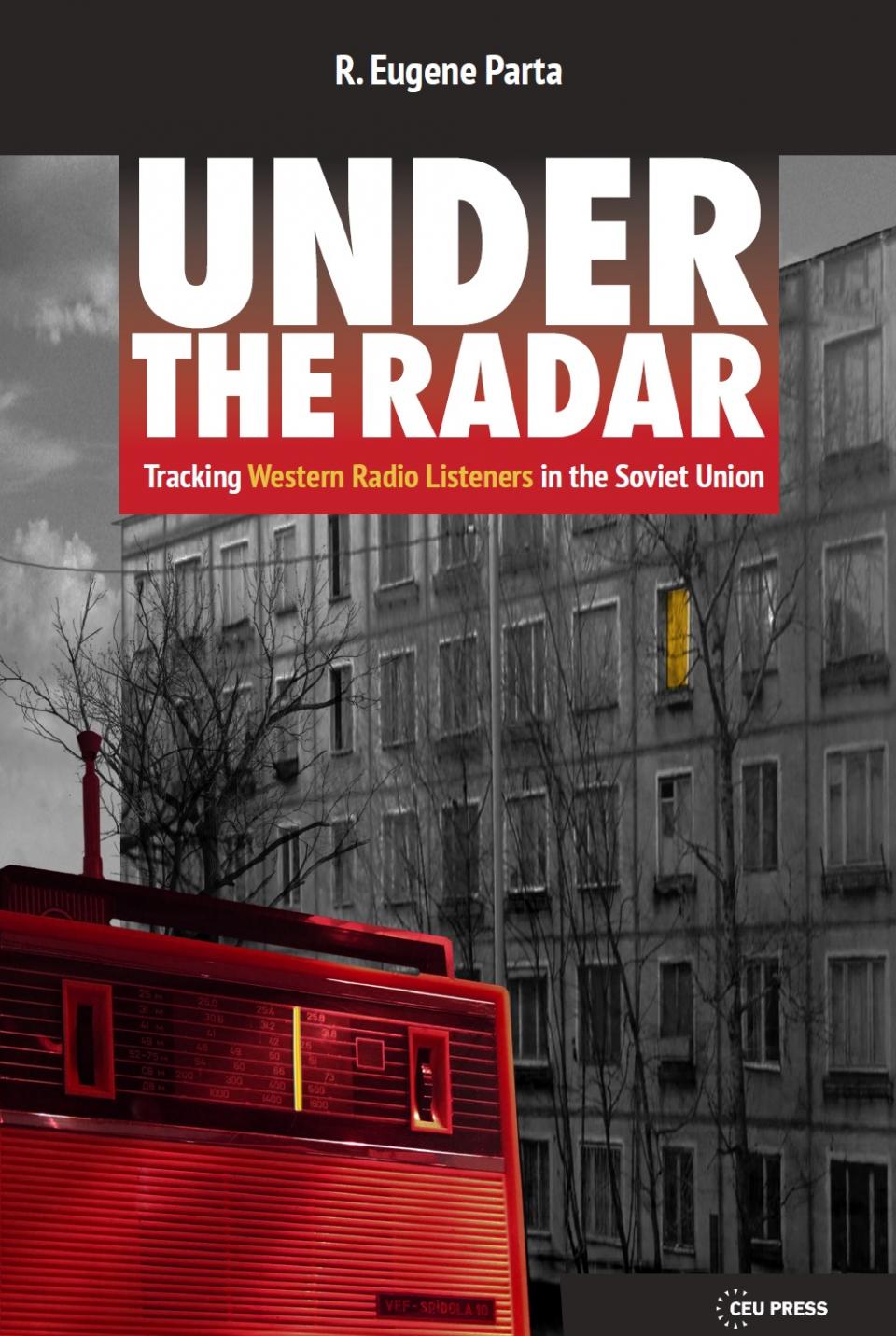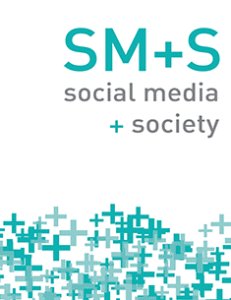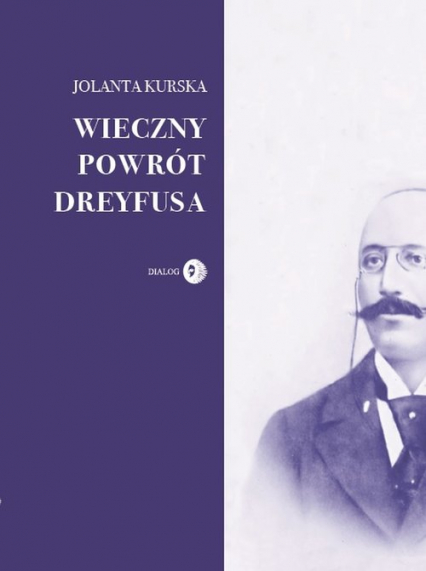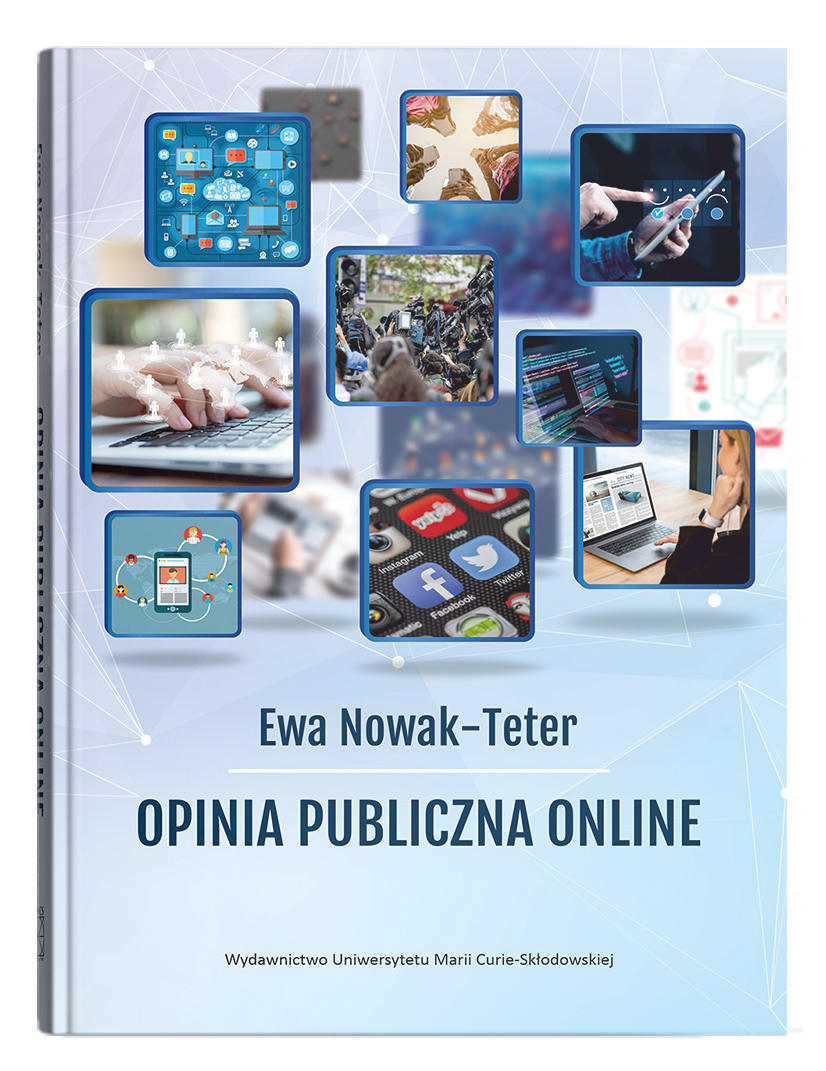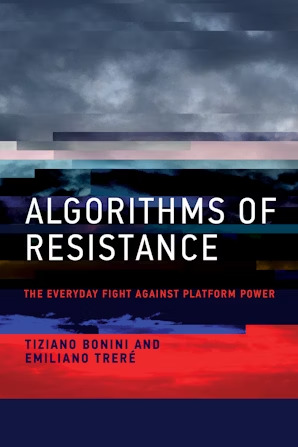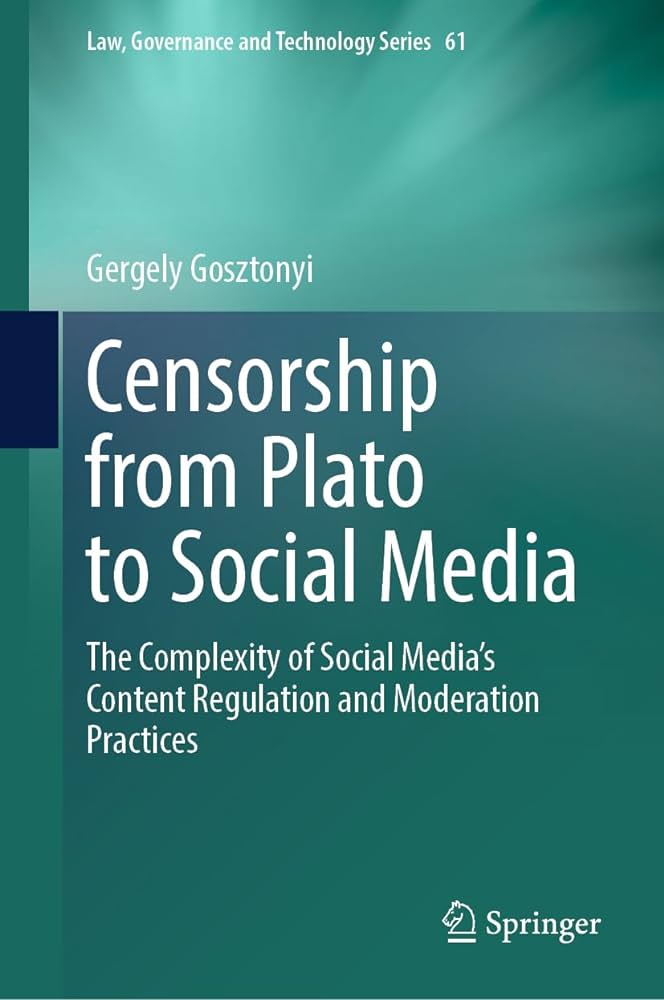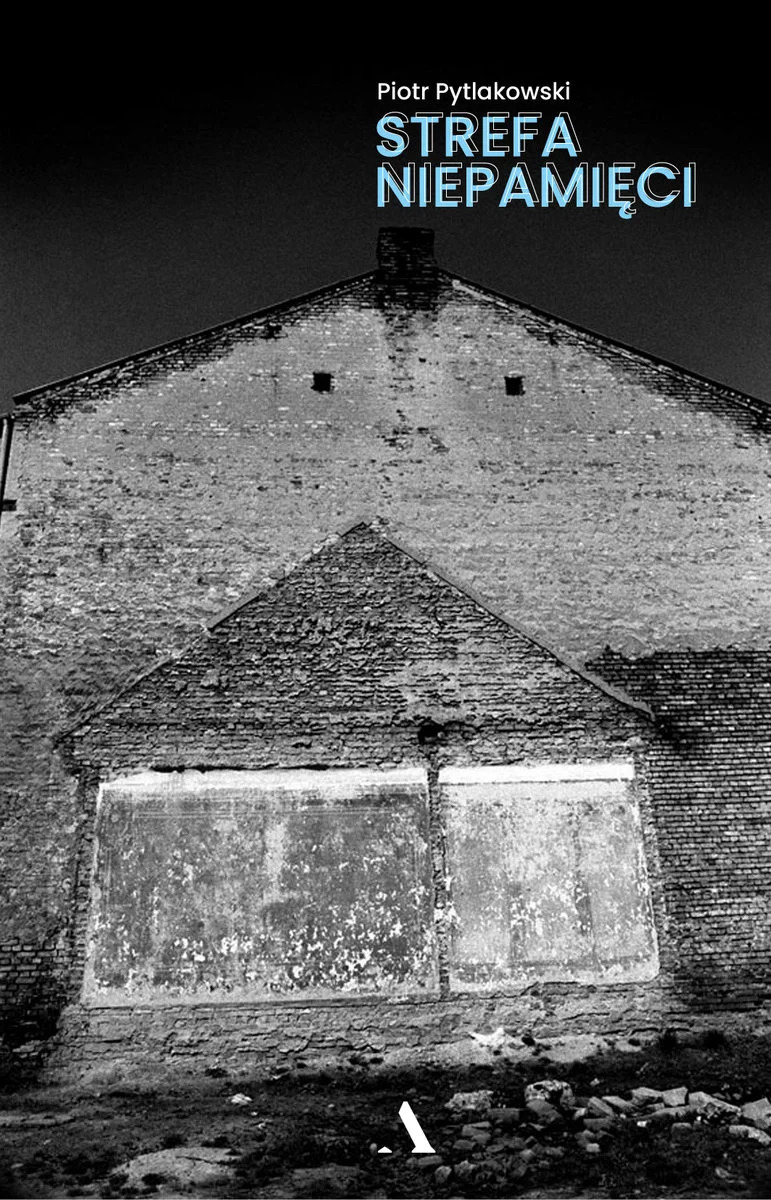Nagroda im. dr. Karola Jakubowicza
Nagroda im. dr. Karola Jakubowicza, afiliowana przy Polskim Towarzystwie Komunikacji Społecznej, została ustanowiona przez Małgorzatę Semil-Jakubowicz w 2018 roku. Nagroda przyznawana jest za wybitne prace naukowe, które wpisują się w obszar zainteresowań Patrona Nagrody. Głównym celem konkursu jest wspieranie naukowców, którzy zajmują się badaniami demokracji, praw człowieka, polityki medialnej, etyki dziennikarskiej i mediów publicznych. Kapitułę Nagrody tworzą: Małgorzata Semil-Jakubowicz (członkini honorowa Kapituły – Fundatorka), prof. Iwona Hofman (Przewodnicząca Kapituły; Prezes Polskiego Towarzystwa Komunikacji Społecznej; Uniwersytet Marii Curie-Skłodowskiej w Lublinie), prof. Alicja Jaskiernia (Uniwersytet Warszawski), dr Hanna Machińska (Wydział Prawa i Administracji, Uniwersytet Warszawski), prof. ucz. dr hab. Michał Głowacki (redaktor naczelny „Central European Journal of Communication"; Uniwersytet Warszawski), prof. ucz. dr hab. Beata Klimkiewicz (Uniwersytet Jagielloński), prof. Elżbieta Matynia (the New School for Social Research), Halina Rostek (Krajowa Rada Radiofonii i Telewizji), prof. Jerzy Olędzki (Członek Honorowy PTKS) oraz Przewodniczący sieci badawczej International Association of Public Media Researchers (IAPMR) - dr Alessandro D'Arma (University of Westminster) i dr Maria Michalis (University of Westminster).
W 2018 roku Kapituła Nagrody przyznała Nagrodę dwóm polskim naukowcom: Marii Nowinie Konopce (Uniwersytet Jagielloński) i Jakubowi Nowakowi (Uniwersytet Marii Curie-Skłodowskiej w Lublinie). Nagrodę specjalną za wieloletni wkład w rozwój teorii i praktyki mediów publicznych przyznano Christianowi S. Nissenowi – międzynarodowemu ekspertowi i byłemu dyrektorowi generalnemu duńskich mediów publicznych (Danmarks Radio – DR).
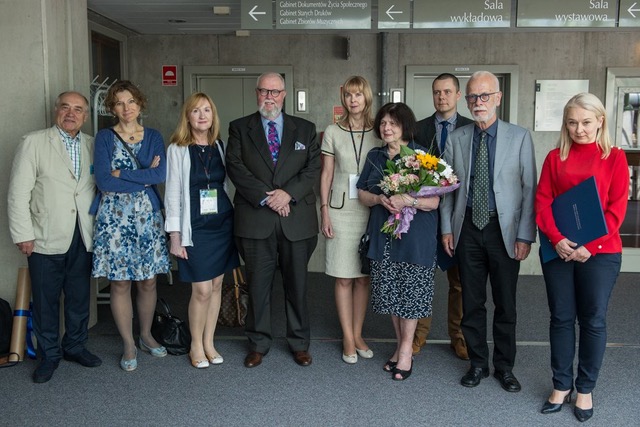
Na zdjęciu: Zwycięzcy pierwszej edycji Nagrody im. dr. Karola Jakubowicza podczas uroczystości wręczenia Nagród - konferencji the European Media Management Association (Warszawa, 15 czerwca 2018 r.). Fot. Jarosław Królikowski, Anna Onuszczuk (Wydział Dziennikarstwa, Informacji i Bibliologii, Uniwersytet Warszawski).
W 2019 r. Nagrodę im. dr. Karola Jakubowicza otrzymały Małgorzata Adamik-Szysiak (Uniwersytet Marii Curie-Skłodowskiej w Lublinie) i Maria Łoszewska-Ołowska (Uniwersytet Warszawski).
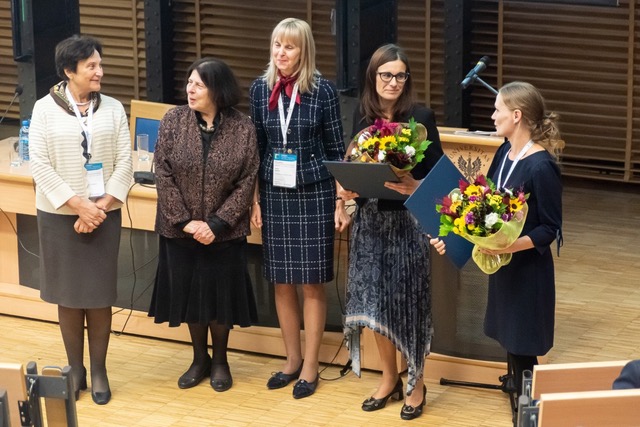
Na zdjęciu: Zwycięzcy drugiej edycji Nagrody im. dr. Karola Jakubowicza podczas uroczystości wręczenia Nagród - V Kongresu Polskiego Towarzystwa Komunikacji Społecznej (Warszawa, 19 września 2019 r.). Fot. Paweł Brzeziński, Anna Zapolska-Downar (Wydział Dziennikarstwa, Informacji i Bibliologii, Uniwersytet Warszawski).
W 2020 r. Kapituła Nagrody i jej laureaci z poprzednich edycji zdecydowali o nominowaniu sześciu publikacji w ramach konkursu. Wśród nich znalazła się też – pierwsza w historii plebiscytu – książka wydana poza granicami Polski. Jest to przejaw strategii umiędzynarodowienia Nagrody, przyjętej przez Kapitułę podczas spotkania w Biurze Rzecznika Praw Obywatelskich.
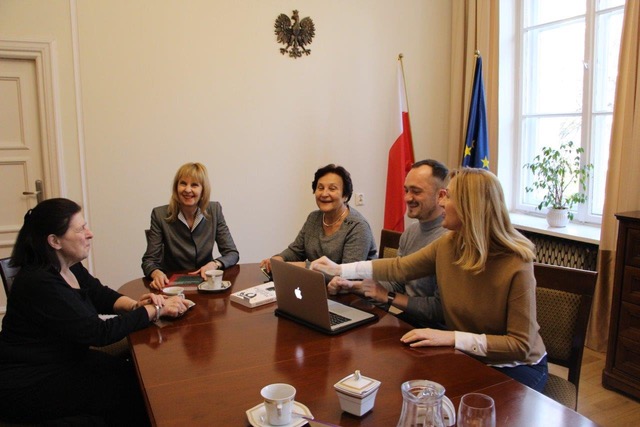
Na zdjęciu: Kapituła obradująca nad nominacjami do Nagrody im. dr. Karola Jakubowicza w 2020 roku (Warszawa, 11 marca 2020 r.). Fot. Biuro Rzecznika Praw Obywatelskich.
W 2020 r. Nagrodę im. dr. Karola Jakubowicza otrzymała Agnieszka Walecka-Rynduch (Uniwersytet Pedagogiczny im. Komisji Edukacji Narodowej w Krakowie).
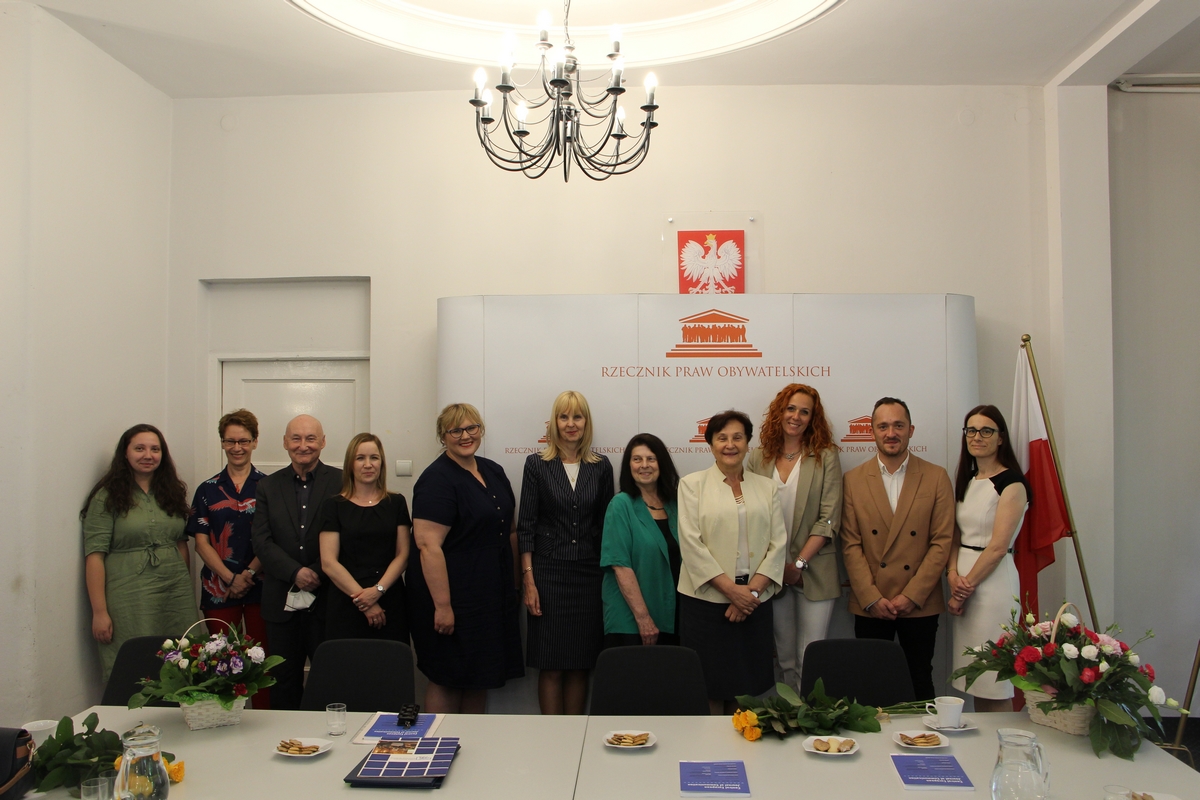
Na zdjęciu: Zwyciężczyni trzeciej edycji Nagrody im. dr. Karola Jakubowicza oraz uczestnicy uroczystości wręczenia Nagrody w Biurze Rzecznika Praw Obywatelskich (Warszawa, 15 lipca 2020 r.). Fot. Dagmara Derda (Biuro Rzecznika Praw Obywatelskich).
Od 2021 roku do Kapitułę Nagrody współtworzą także Przewodniczący sieci badawczej International Association of Public Media Researchers (IAPMR) - nominacja monografii w kolejnych edycjach konkursu jest więc wspólną inicjatywą naukowców z Polski i z zagranicy.
W 2021 r. Laureatką Nagrody im. dr. Karola Jakubowicza została Karen Donders z Belgii (VRT; Vrije Universiteit Brussel).
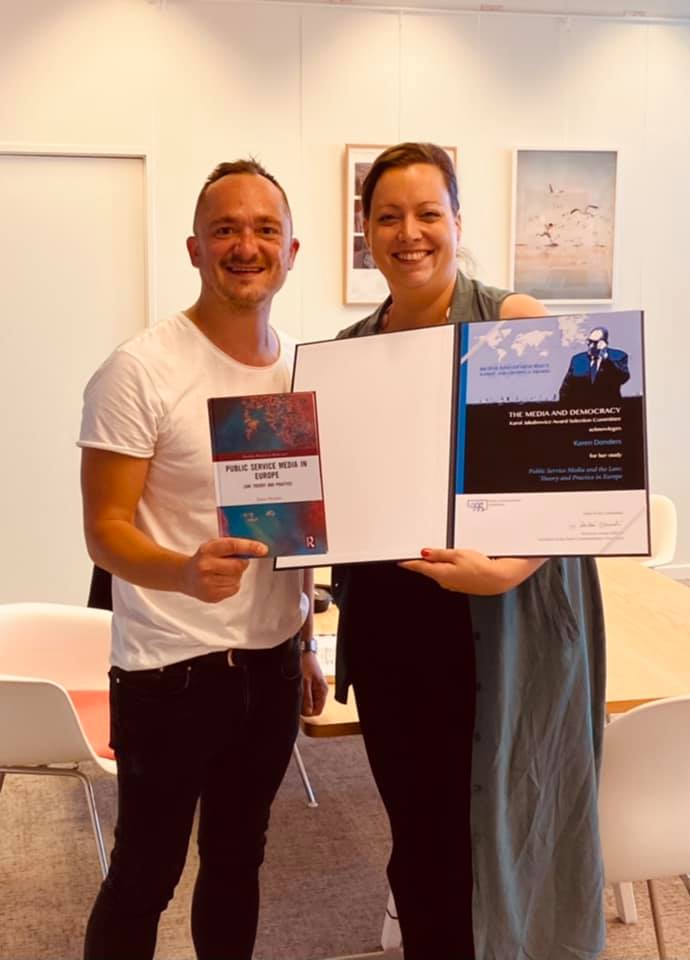
Na zdjęciu: Michał Głowacki wręcza pamiątkowy dyplom Karen Donders, zwyciężczyni czwartej edycji Nagrody im. dr. Karola Jakubowicza (Bruksela, wrzesień 2021 r.). Fot. VRT.
W 2022 r. Nagrodę im. dr. Karola Jakubowicza otrzymała Urszula Doliwa (Uniwersytet Warmińsko-Mazurski w Olsztynie).
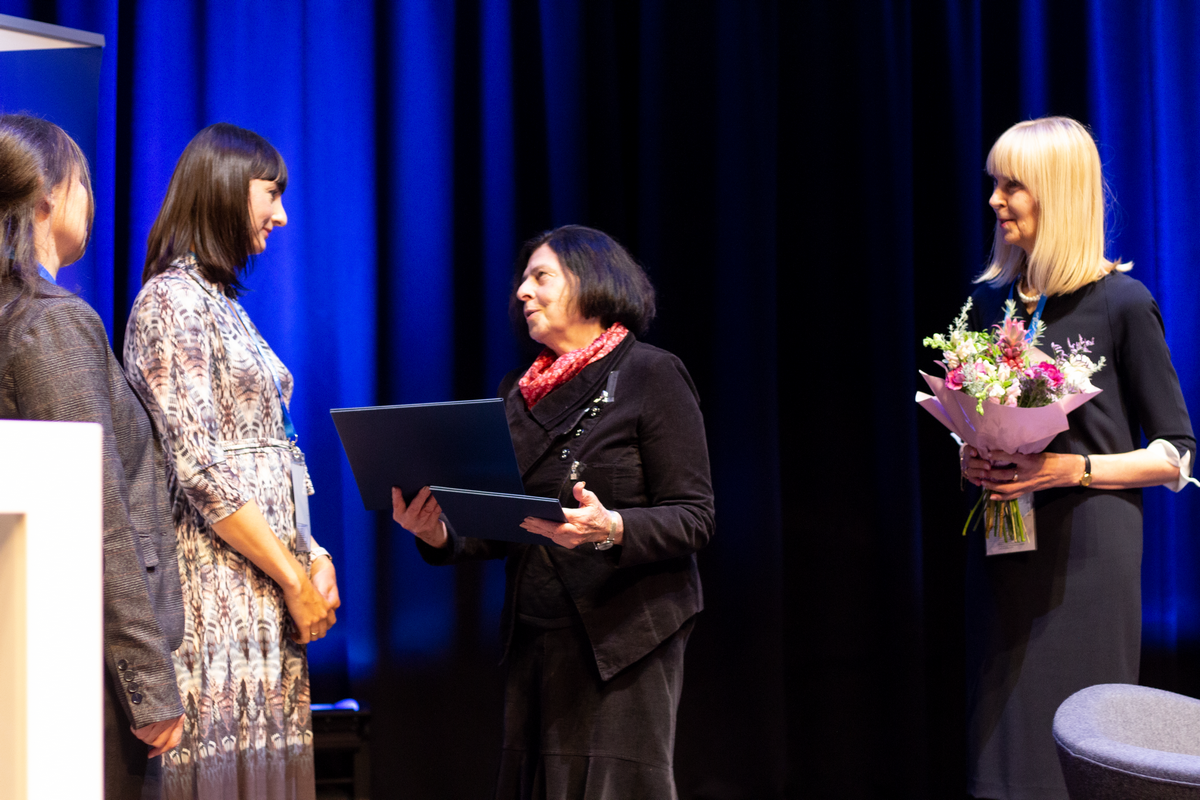
Na zdjęciu: Katarzyna Konarska oraz Urszula Doliwa odbierają pamiątkowe dyplomy z rąk Małgorzaty Semil-Jakubowicz oraz Iwony Hofman podczas uroczystego wręczenia Nagrody, które nastąpiło w ramach rozpoczęcia VI Kongresu PTKS pt. „Media i społeczeństwo w erze platform, algorytmów i danych” (22 września 2022 r., Europejskie Centrum Solidarności w Gdańsku). Fot. Beata Użarowska (Uniwersytet im. Adama Mickiewicza w Poznaniu).
W 2023 r. Laureatem Nagrody im. dr. K. Jakubowicza został prof. Slavko Splichal (Uniwersytet Lublański, Słowenia) za monografię pt. Datafication of Public Opinion and the Public Sphere: How Extraction Replaced Expression of Opinion (London, New York: Anthem Press, 2022). Po raz pierwszy w historii konkursu Kapituła Nagrody zadecydowała taże o przyznaniu nagrody specjalnej dla publikacji o charakterze publicystyczno-popularyzatorskim, poświęconej tematyce mediów i demokracji - otrzymała ją książka Jolanty Kurskiej Wieczny powrót Dreyfusa (Warszawa: Wydawnictwo Akademickie Dialog, 2022).
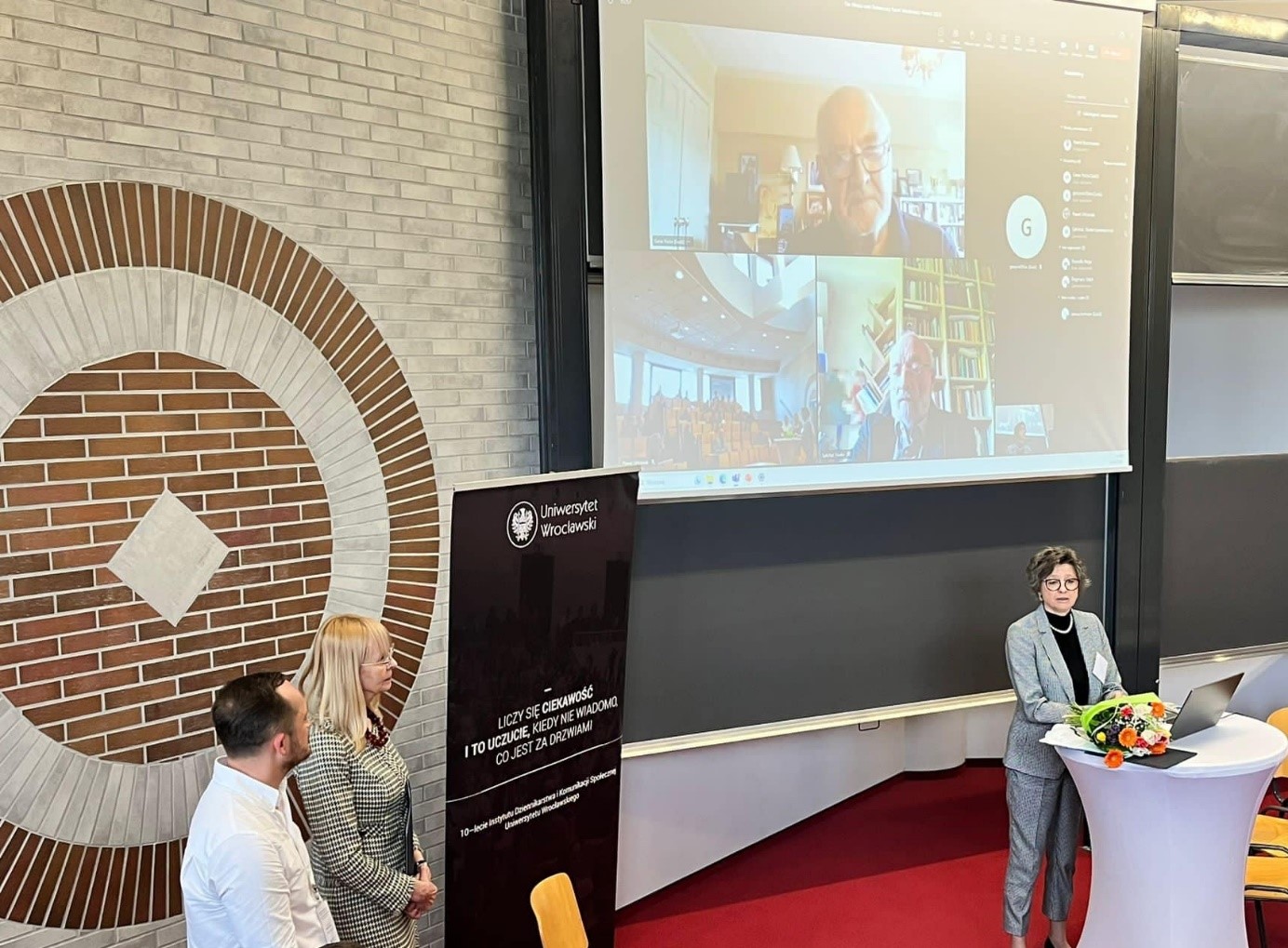
Na zdjęciu: Dr Jolanta Kurska podczas odbierania specjalnej Nagrody im. dr. K. Jakubowicza z rąk prof. I. Hofman oraz prof. M. Głowackiego podczas rozpoczęcia konferencji z cyklu „Studia i Perspektywy Medioznawcze”, organizowanej przez Instytut Dziennikarstwa i Komunikacji Społecznej Uniwersytetu Wrocławskiego w dn. 15 maja 2023 roku. Fot. Jacek Mikucki (Uniwersytet Warszawski).
Autorzy: Michał Głowacki i Dagmara Sidyk-Furman
